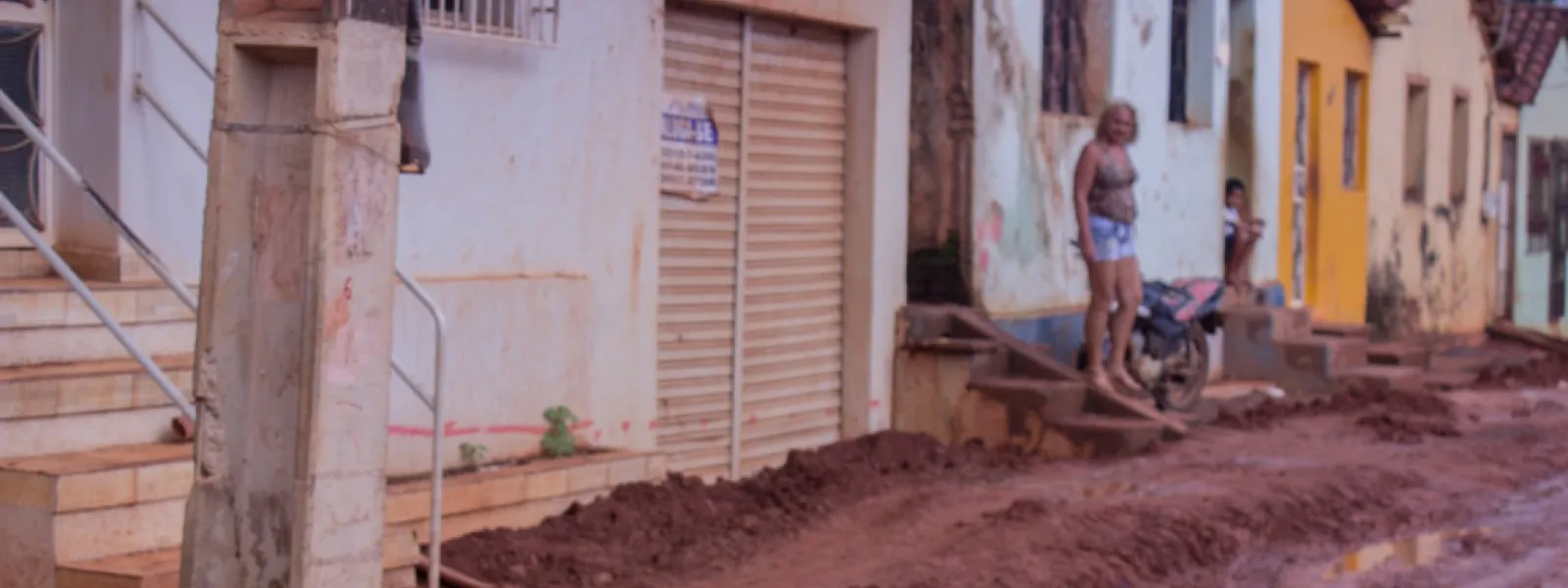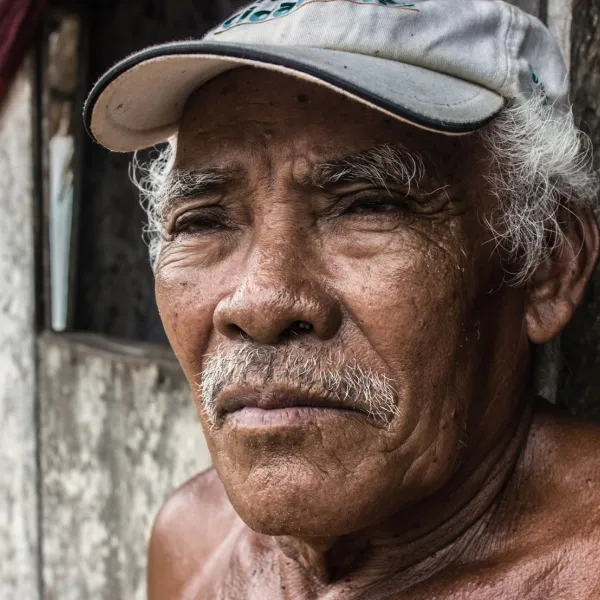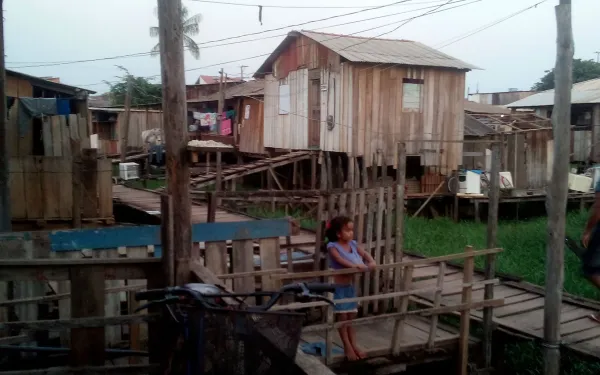
Project
Photo: Maíra Irigaray / Amazon WatchHolding Brazil accountable for the Belo Monte Dam
When fully operational, Belo Monte will be the third-largest dam in the world, constructed in one of the most important ecosystems on the planet: the Amazon rainforest. It sits on the Xingu River in Pará, a state in northern Brazil. The reservoir will cover 500 square kilometers of forest and farmland—an area the size of Chicago.
For the people of the Xingu, construction of Belo Monte has meant loss of access to water, food, housing, work and transportation. At least 20,000 people have been displaced.
The government and construction consortium began to construct the dam without first consulting the people of the region, many of whom are indigenous. They flouted international human rights law, which requires the free, prior and informed consent of affected indigenous communities. Brazil also failed to comply with precautionary measures issued by the Inter-American Human Rights Commission, which were intended to protect the life, health, and integrity of local communities.
Though Belo Monte began operations in May 2016, it is not yet operating at full capacity. In April 2016, a federal court suspended the dam's operating license because the consortium in charge did not complete basic sanitation works in Altamira, the city nearest to and most affected by the dam.
Partners:

Related projects
Latest News
Belo Monte Dam Suspended by Brazilian Appeals Court
FOR IMMEDIATE RELEASE Media Contacts: Brent Millikan, International Rivers [email protected], +55 61 8153-7009 Andrew Miller, Amazon Watch [email protected], +1 202 423 4828 Joelson Calvacante, Inter-American Association for Environmental Defense (AIDA) [email protected], +52 55 5212-0141 Belo Monte Dam Suspended by Brazilian Appeals Court Project was illegally authorized by Congress without prior consultation with indigenous tribes, judges say Altamira, Brazil: A high-level court yesterday suspended construction of the controversial Belo Monte dam project on the Amazon’s Xingu River, citing overwhelming evidence that indigenous people had not been properly consulted prior to government approval of the project. A group of judges from Brazil's Regional Federal Tribunal (TRF1) upheld an earlier decision that declared the Brazilian Congress’s authorization of the project in 2005 to be illegal. The decision concludes that the Brazilian Constitution and ILO Convention 169, to which Brazil is party, require that Congress can only authorize the use of water resources for hydroelectric projects after an independent assessment of environmental impacts and subsequent consultations with affected indigenous peoples. The ruling means that Brazilian Congress will have to correct its previous error by organizing consultations on the project’s impacts with affected indigenous peoples of the Xingu River, especially the Juruna, Arara and Xikrin tribes. Their opinions should be considered in a Congressional decision on whether to authorize Belo Monte, and in the meantime the project consortium has been ordered to suspend construction. Project consortium Norte Energia, S.A, led by the parastatal energy company Eletrobras, faces a daily fine of R$500,000, or about US$250,000, if it does not comply with the suspension. The dam consortium is expected to appeal the decision in the Brazilian Supreme Court. “The court’s decision highlights the urgent need for the Brazilian government and Congress to respect the federal constitution and international agreements on prior consultations with indigenous peoples regarding projects that put their livelihoods and territories at risk. Human rights and environmental protection cannot be subordinated to narrow business interests” stated Federal Judge Souza Prudente, who authored the ruling. “This latest court ruling vindicates what indigenous people, human rights activists and the Federal Public Prosecutor’s Office have been demanding all along. We hope that President Dilma’s Attorney General and the head judge of the federal court (TRF1) will not try to subvert this important decision, as they have done in similar situations in the past,” said Brent Millikan of International Rivers, based in Brasilia. “This decision reinforces the request made by the Inter-American Commission on Human Rights in April 2011 to suspend the project due to lack of consultations with indigenous communities. We hope that Norte Energia and the government comply with this decision and respect the rights of indigenous communities,” said Joelson Cavalcante of the Interamerican Association for Environmental Defense (AIDA), an organization giving legal support to affected communities. The Brazilian Congress authorized construction of Belo Monte seven years ago without an environmental impact assessment (EIA). A subsequent study - produced by state-owned energy company Eletrobras and three of Brazil’s largest construction companies (Camargo Correa, Andrade Gutierrez, and Odebrecht) - was widely criticized for underestimating socio-environmental impacts, especially on indigenous peoples and other traditional communities living downstream from the huge dam that would divert 80% of the Xingu’s natural flow. The EIA was approved by Brazil’s federal environmental agency (IBAMA) in February 2010 under intense political pressure and over the objections of the agency's own technical staff. With dam construction racing ahead since June 2011, many of Belo Monte’s forewarned social and environmental consequences are proving real. As a result, indigenous people have become more vocal in their opposition to Belo Monte. During the United Nations' Rio+20 conference in June, indigenous leaders launched a 21- day occupation of the dam site, protesting against the growing impacts of the project and broken promises by dam-builders. Two weeks later, indigenous communities detained three Norte Energia engineers on tribal lands. Both protests demanded suspension of the project due to non-compliance of mitigation requirementes. Last month, the Federal Public Prosecutors’ Office filed a lawsuit calling for suspension of the Belo Monte’s installation license, given widespread non-compliance with conditions of the project’s environmental licenses. Given this contentious and convoluted history, the long overdue process of consultations with indigenous peoples on Belo Monte is not likely to produce a positive verdict on Belo Monte, from the point of view of indigenous peoples. Similar conflicts over violations of indigenous rights by dam projects are emerging elsewhere in the Brazilian Amazon. Last week, in another landmark decision led by judge Souza Prudente, a group of judges from the TRF1 , the same court ordered the immediate suspension of one of five large dams planned for the Teles Pires river, a major tributary of the Tapajos river, noting a lack of prior and informed consultations with the Kayabi, Apiakás and Munduruku indigenous peoples affected by the project. According to Souza Prudente, "the aggression against indigenous peoples in the case of the Teles Pires dam has been even more violent than in Belo Monte. A political decision to proceed with the construction of five large dams along the Teles Pires river was made by the Ministry of Mines and Energy with no effective analysis of impacts on the livelihoods and territories of indigenous peoples. The Sete Quedas rapids on the Teles Pires river are considered sacred by indigenous peoples and are vital for the reproduction of fish that are a staple of their diets. Yet none of this was taken into account in the basin inventory and environmental impact studies. Moreover, the government and Congress simply ignored their obligations to ensure prior and informed consultations with indigenous peoples, as determined by the Federal Constitution and ILO Convention 169". Late yesterday, the President of the TRF1 announced his intention to overturn the decision of Souza Prudente and other federal judges regarding the Teles Pires hydroproject, marking a growing crisis within Brazil’s judiciary system over the Dilma Rousseff administration’s ambitious dam-building plans in the Amazon.
Read moreLeaders of Brazilian movement opposed to controversial Belo Monte dam threatened with imprisonment, for Lawful Protests
International Groups Denounce Attempts to Criminalize Civil Society Leaders before OAS and UN Human Rights Bodies. Altamira (PA), Brazil – Brazilian social movements and civil society organizations are facing politically motivated prosecutions for their lawful opposition to the Belo Monte dam complex in the heart of the Amazon, a leading international human rights and environmental organization said today. In a report issued to the human rights arms of the Organization of American States (OAS) and the United Nations (UN), Brazilian and international groups detailed attempts to prosecute human rights and environmental activists and seek the arrests of 11 civil society leaders. Among the accused are a local reporter, leaders of the Xingu Alive Forever Movement, a Catholic priest and nun who led a mass during the Xingu+23 protest, a documentary filmmaker and a fisherman whose house was recently demolished to make way for dam construction. “The complaints filed by the dam consortium and the request for arrest warrants are based on fabricated information and gross distortions of the facts, with the clear intention of criminalizing leaders of a legitimate social movement opposed to the federal government’s obsession with the construction of Belo Monte, regardless of the project’s human and environmental costs and the rule of law”, said Marco Apolo, lawyer and co-director of SDDH, a renowned human rights NGO based in the state of Para. The police request for the arrest still pending approval in a local court, came in response to a complaint filed by of the consortium of companies building the dam. The peaceful protests organized by Brazilian civil society groups were celebrating 23 years of resistance to the project. Activities were focused in Santo Antonio, a small riverside village whose inhabitants are being displaced by construction of the large dam. In an isolated incident, a small group of protestors autonomously entered the offices of the consortium, causing some damages. Despite the absence of evidence linking the incident to the leaders of the movement and the protests, the police request for arrest warrants charges them with invasion and damage to private property, theft, arson, and disturbing the peace. “We expect a prompt response from the OAS and the UN regarding this blatant attempt to intimidate and criminalize human rights and environmental defenders working to protect the communities affected by Belo Monte,” stated Joelson Cavalcante, a Brazilian lawyer with the Interamerican Association for Environmental Defense (AIDA), which co-authored the report. “The Brazilian government cannot simply silence critiques of its development policy by putting them in jail.” Some of the accused also are plaintiffs in a case before the Inter-American Commission on Human Rights against Brazil for failing to consult local communities and ignoring important safeguards to protect the rights and environment of the people affected by the dam. In April 2011, the Inter-American Commission requested special measures to protect the rights of 12 indigenous communities. The Brazilian government has refused to comply with the resolution so far. Brazilian and international groups, including AIDA, have raised multiple claims of human rights violations surrounding the development of the Belo Monte dam. The project would seriously harm the lands and livelihoods of indigenous and rural communities including un-contacted tribes in voluntary isolation. The dam is slated to be the world’s third largest and displace as many as 40,000 families. The attempt to silence protest against the project comes in the wake of recommendations from the UN Human Rights Council calling on the Brazilian government to safeguard the work of human rights defenders and protect the human rights of indigenous and African-descendant communities. “Belo Monte is a sad example of misdirected development policy gone awry,” said Astrid Puentes, Co-Director of AIDA. “We expect the Brazilian government to heed the recommendations of the UN and OAS and promote truly just and sustainable development, demonstrating that statements made at the Rio +20 Conference are real. Stopping the unwarranted criminalization of human right defenders in the Xingu would be a positive step in that direction.”
Read more
Brazilian Government questioned yet again by international human rights body over Belo Monte Dam controversy
Brasilia, Brazil - On April 11, the Inter-American Commission on Human Rights (IACHR), the human rights arm of the Organization of American States (OAS), asked the Brazilian government to explain reports of poor water quality and forced evictions in indigenous communities affected by the construction of the Belo Monte Hydroelectric Dam in the Xingu River Basin, Brazil. This is the second time that the Inter-American Commission has asked the government to explain the health and human rights impact of construction since requesting precautionary measures in favor of indigenous communities in April of last year. The IACHR also repeated its request that Brazil detail specific measures designed to mitigate the dam’s impact. The commission gave Brazil 20 days to respond regarding the situation in the Xingu River Basin. “We hope the Brazilian government will react quickly to this latest resolution by taking steps to protect the human rights of affected communities,” said Jacob Kopas, legal counsel with the Interamerican Association for Environmental Defense (AIDA). The IACHR is currently reviewing an international lawsuit filed by the Xingu River Alive Forever Movement (MXVPS), Para Society for the Defense of Human Rights (SDDH), Global Justice, and AIDA. The lawsuit highlights the damages the project is causing to the Paquiçamba and Arara da Volta Grande Indigenous Reservations. “The case before the IACHR aims for Brazil to meet its obligations under international human rights treaties,” explained Roberta Amanajás, lawyer with SDDH. “And in the Belo Monte case, there is abundant evidence these rights are being violated.” This past January, indigenous communities downstream of the construction site registered several cases of diarrhea and skin rashes associated with the sudden deterioration in the water quality of the river, on which they depend for drinking, bathing and cooking. In response, the Brazilian Federal Public Ministry conducted an independent water quality analysis but results have not been published yet. According to Public Ministry officials, constant water control tests are necessary to avoid the risk of contaminating the river’s waters. Another complaint under investigation by the IACHR concerns the forced eviction of impoverished, rural communities, in an area where most small farmers do not have formal deeds to their land. Fearing evictions without any compensation whatsoever, many families have accepted payments worth less than half the market value of their lands. This was the case of farmers from the Santo Antonio village, where only 26 out of 252 rural properties had a formal deed. In one case, a farmer received only $3,775 USD for a property that would have fetched almost $12,000 USD on the open market a few years ago.
Read more